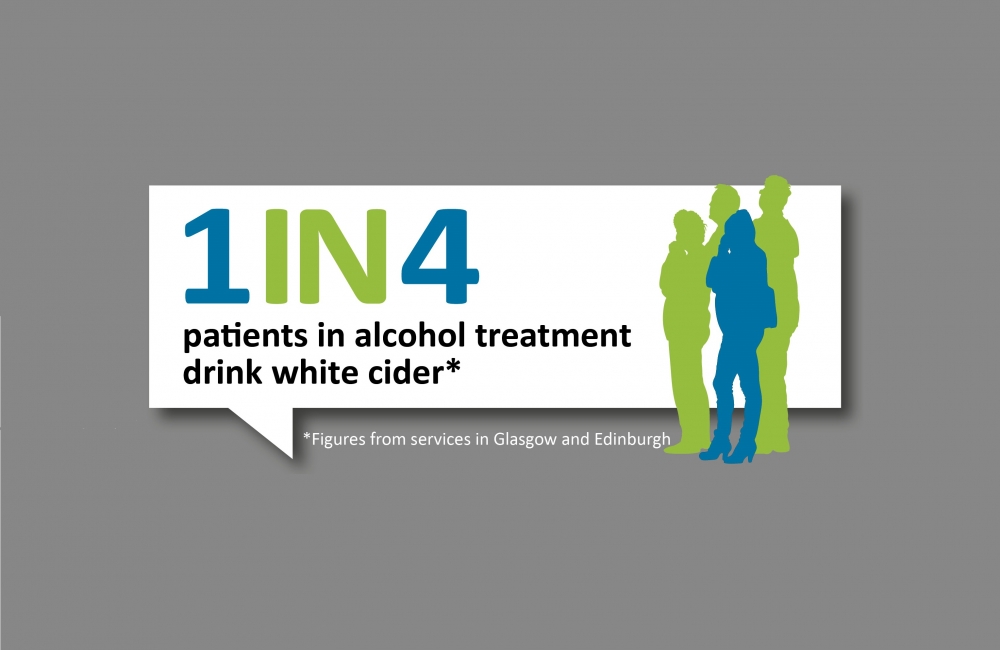Raise tax on cheap, strong cider favoured by children
Ahead of this year’s Budget, we are joining with health experts to call on the Chancellor to increase duty on the cheap, high-strength white cider often purchased by children and dependent drinkers.
The call to increase duty on white cider comes as our figures reveal that, although the number of teenage drinkers is falling, the North East still has the highest rates of drinking amongst 11-15 year olds, with almost 3,000 becoming regular drinkers every year.
A recent Balance study found that three litre bottles of high-strength white cider, which contain the same amount of alcohol as 22 shots of vodka, are available for as little as £3.99 in off licences in the region, equating to a price of just 18p per unit.
Due to the low price and high strength of these ciders, children and homeless people, many of whom end up seeking help from specialist alcohol treatment services, account for almost all sales of the drink.
High strength white cider, such as Frosty Jack’s and White Ace, currently have a lower duty per unit than any other alcohol product and a targeted rise in duty would leave 80 percent of cider sales unaffected.
A recent public opinion survey carried out by the Alcohol Health Alliance revealed that 66% of the public would support a duty increase on strong white cider.
Colin Shevills, Director of Balance, said: “In recent surveys carried out by Alcohol Concern, strong white cider is consistently in the top five drinks consumed by children requiring specialist alcohol treatment. It’s not right that our current tax system means that this industrial strength white cider can be sold so cheaply, fuelling some of the worst problems we have with alcohol.
“We’re all paying a high price for these low-cost drinks. On a daily basis, alcohol treatment services across the North East are seeing children and adults suffering from the consequences of this cheap, strong alcohol, available at pocket money prices. The only winner in all of this is the alcohol industry.”
Amanda Healy, Chair of the Association of Directors of Public Health North East, said: “We know affordability is strongly linked to alcohol consumption and it is shocking to think that the equivalent to 22 shots of vodka is available in our region for just a few pounds.
“The majority of people, both adults and children, who we see in alcohol treatment services across the North East, tell us they are drinking the cheapest alcohol, which is usually white cider and cheap vodka. While drinking this type of low-cost high-volume alcohol brings a number of health problems in itself, it also makes children and adults hugely vulnerable to poor outcomes and exploitation.
“If we want to reduce harm and protect our children and other vulnerable groups then there is no doubting that it is vital to raise duty on the cheapest, most harmful types of alcohol.”
Dr David Hambleton, Chief Executive for NHS South Tyneside Clinical Commissioning Group (CCG) and Chair of the Northern CCG Forum, said: “The widespread availability of low-cost super strength alcohol is not just impacting on our region’s health, it is putting severe pressure on the NHS at a time when the service is stretched. One in five of all hospital admissions are alcohol related, while at peak times between 70 and 80 per cent of people turning up at our Emergency Departments have been drinking alcohol.
“NHS staff are working flat out to provide the level of service we all expect. The Chancellor could help reduce the pressures on the service by increasing duty on the kind of product which is causing so much harm.”
Alongside duty increases, Balance is urging the Chancellor to implement minimum unit pricing for alcohol, and to reinstate the alcohol duty escalator, scrapped in 2014. The duty escalator sees the duty rate on all alcoholic drinks increase by two percent above the rate of inflation every year.
Treasury figures show that tax cuts given to the alcohol industry over the past four budgets will cost the public purse £790 million in 2017/18 and a total of £2.9 billion over five years. At the same time, it has been estimated that alcohol harm is costing UK society anywhere between £27 billion and £52 billion a year.
